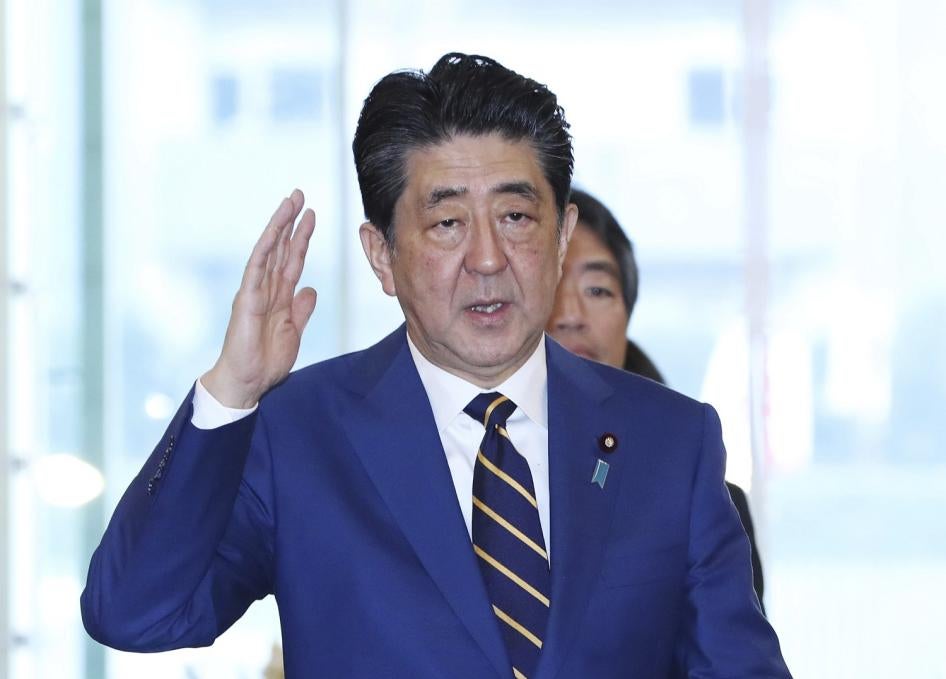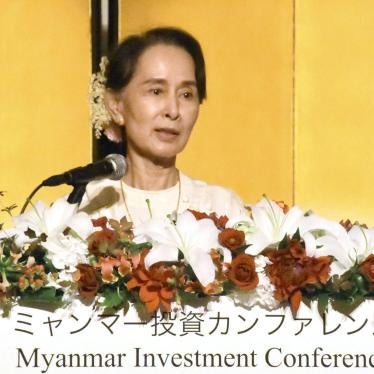(Tokyo) – The Japanese government should reverse course and resume its practice of promoting accountability for human rights abuses in North Korea, Human Rights Watch and almost 300 other nongovernmental organizations and concerned individuals said today in a letter to Japanese Prime Minister Shinzo Abe.
In 2019, reversing over a decade of past practice, Japan decided to opt out of sponsoring a key annual resolution on North Korea in the United Nations Human Rights Council. In May, Prime Minister Abe said he would be willing to meet the North Korean leader, Kim Jong Un, without preconditions. That was a shift from his previous position that any summit would have to yield progress on the issue of past abductions of Japanese citizens.
“Prime Minister Shinzo Abe and his government were once champions for international efforts to expose North Korean atrocities, including abuses against the North Korean people and Japanese citizens abducted by the government,” said Kanae Doi, Japan director. “The Japanese government should re-evaluate its decision to soften its stance, and again take the lead in strengthening international efforts to investigate North Korea’s abuses and hold government officials accountable for their crimes.”
The joint letter was signed by 54 organizations and concerned individuals, including coalitions representing almost 300 nongovernmental organizations, from Asia, Latin America, Africa, Europe, and North America.
The Japanese government did not provide an adequate explanation for its decision not to sponsor the North Korea resolution at the Human Rights Council. An unnamed Japanese official told the Japanese newspaper Asahi Shimbun, in May, that since the North Korean government is highly sensitive to international criticism, it would be worthwhile to test a softer approach to see whether it might yield diplomatic results.
The joint letter specifically urges the Japanese government to again lead on this year’s Human Rights Council resolution on North Korea.
“If Prime Minister Abe really wants to resolve the issue of abductions of Japanese citizens, he needs to toughen his overall position on human rights issues, and not go soft,” Doi said. “The Japanese government’s weak position only signals to Pyongyang that human rights violations can continue without consequences.”









